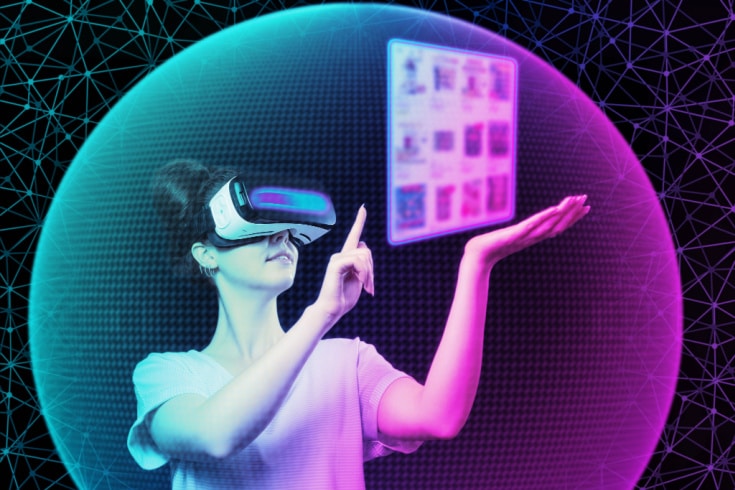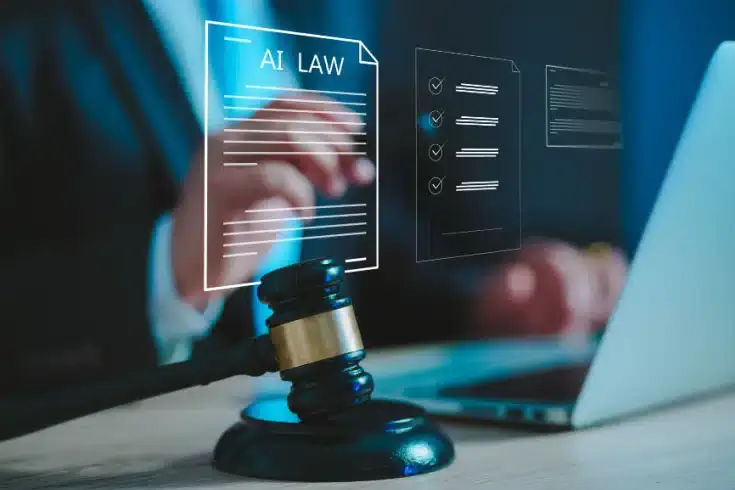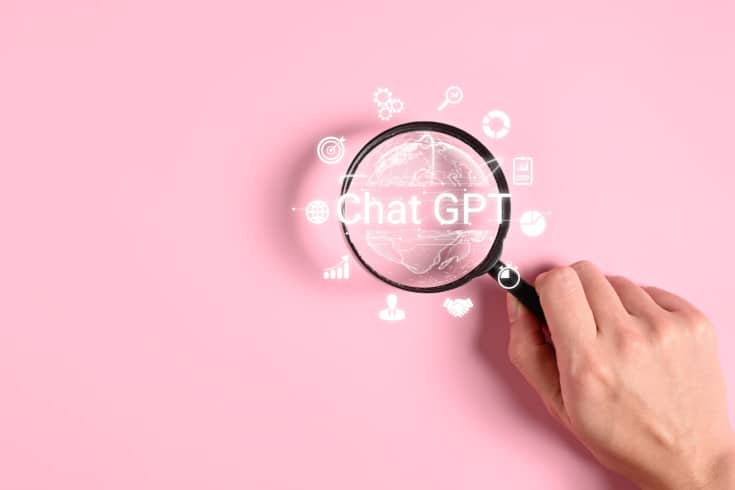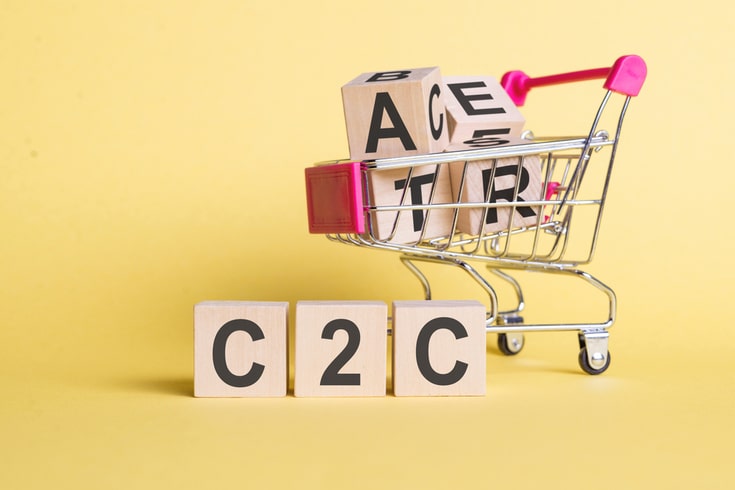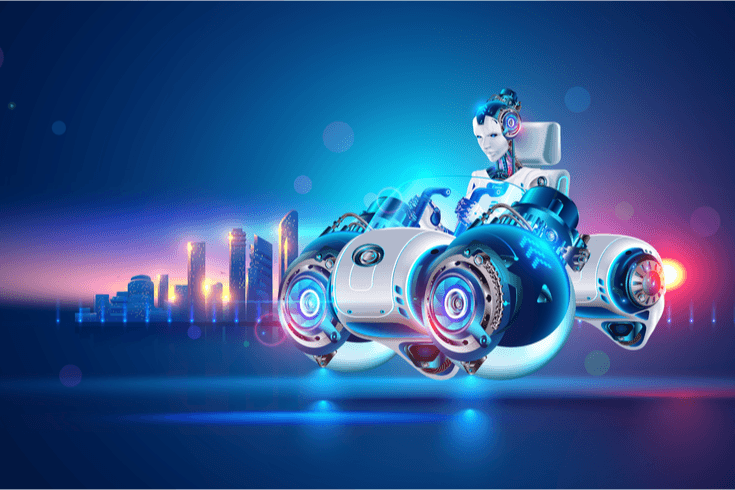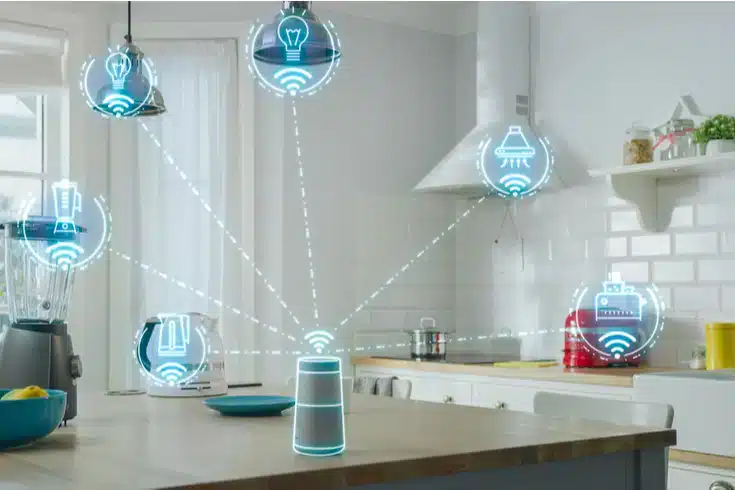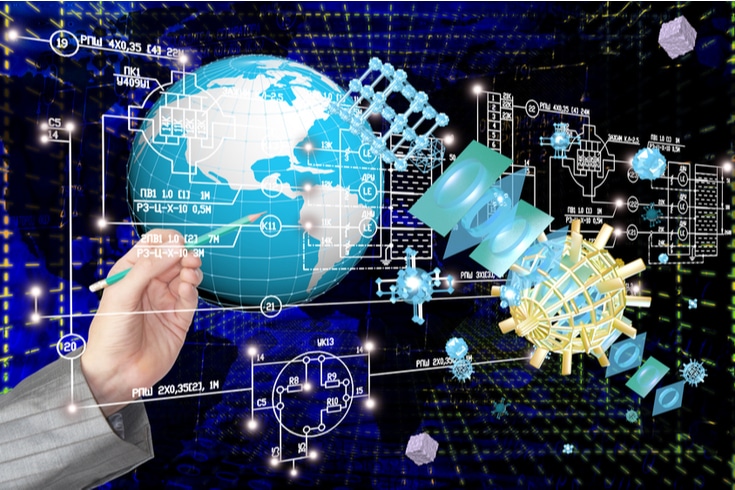ChatGPT for Profit: What’s Actually Legal?
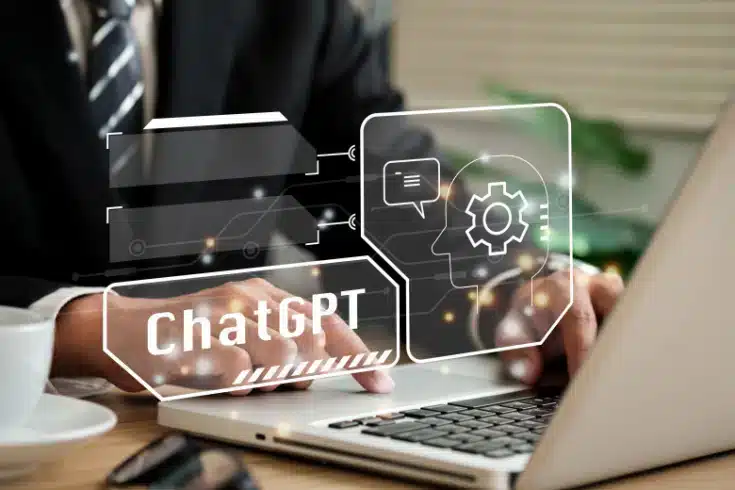
Since its release in November 2022, the Large Language Model (LLM), ChatGPT, has become increasingly integrated into our daily lives. Many businesses have begun to explore creative ways to leverage the tool for commercial use.
To put it simply, using ChatGPT for commercial purposes is possible, but like most things, there are rules that must be followed. This article goes through said rules and real-life examples, so you can avoid the risks while reaping the benefits of AI tools like ChatGPT.
Commercial Use of ChatGPT: Possible, or Not?
In short, yes, ChatGPT can indeed be used for commercial purposes. There are the obvious benefits for its commercial use, like improved productivity and reduced labor costs in businesses. It’s also easily accessible, since its basic functions are free—though GPT-4 enables advanced functions including processing image data.
Bengoshi.com – an online legal consultation platform, announced its AI chat service on a trial basis back in May 2023, which utilized ChatGPT.
Commercial Applications of ChatGPT: Examples
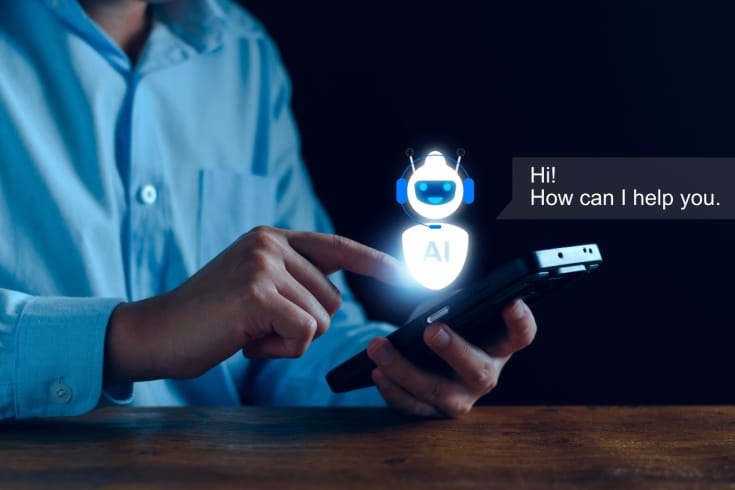
ChatGPT, a Large Language Model(LLM), can have commercial applications in the following:
- Writing assistance
- Customer support
- Software development
- Chatbot construction
ChatGPT is capable of producing human-like language expressions which makes it also useful for creating web content to attract customers to your business.
In addition, it can be leveraged for writing blog articles, summarizing texts, and translating between languages. By automating customer support with ChatGPT, it allows for 24/7/365 responsiveness to customer inquiries, addressing labor shortages and labor costs for start-up businesses.
Commercial Use of ChatGPT and Copyright Issues
As a general rule, so long as you’re using ChatGPT in accordance with its terms of services, commercial use poses no issue. That being said, you must always be cautious of potential copyright issues.
No Issues with OpenAI’s Terms of Use
ChatGPT does not allow for its operator, OpenAI to receive the copyright of texts generated by the users. In fact, OpenAI’s terms of use explicitly states that all rights to the text and content generated by ChatGPT through user input are transferred to the user.
“As between you and OpenAI, and to the extent permitted by applicable law, you (a) retain your ownership rights in Input and (b) own the Output. We hereby assign to you all our right, title, and interest, if any, in and to Output.”
Source: Terms of Use | OpenAI
In June 2023, the Agency for Cultural Affairs of Japan hosted a seminar regarding AI and copyright where it made clear that the Japanese Copyright Act does not differentiate between AI-generated works and human-made works in determining whether or not one’s copyright was infringed. Accordingly, the exceptions that exist for “conventional” copyrights also apply to AI-generated works (Articles 30 to 47-8 of the Japanese Copyright Act).
Therefore, if similarity or dependency between an AI-generated work and a copyrighted work is detected, the copyright holder has a legal right to claim damages for copyright infringement and to seek an injunction, in which the creator of such AI-generated works may face criminal charges.
Reference: Agency for Cultural Affairs|Reiwa 5 (2023) Copyright Seminar ‘AI and Copyright'[ja]
Third-Party Copyrighted Works Used as Data for Machine Learning
On the other hand, ChatGPT processes large amounts of data and information from the internet for the sake of machine learning, of which most definitely includes copyrighted information.
When the data being used for machine learning contains copyrighted works, it cannot be indefinitely determined that the information generated from that data is completely copyright free.
In February 2023, major media outlets and writers from the likes of the Wall Street Journal and CNN, protested against OpenAI, claiming that their articles and works were being used without permission, violating their intellectual property rights.
However, there currently exists no uniform consensus on whether or not information generated from ChatGPT would constitute copyright infringements and it remains an area of copyright law where we can expect further development.
Reference: OpenAI Is Faulted by Media for Using Articles to Train ChatGPT|Bloomberg
Key Points to Consider When Using ChatGPT for Commercial Purposes
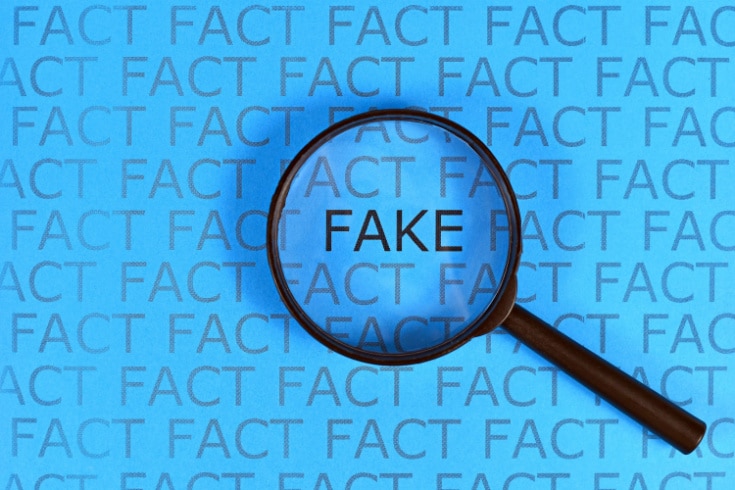
Despite its advanced capabilities, ChatGPT is not foolproof or 100% accurate in any sense, and there are several important points to keep in mind when using it.
Here are a few to start with:
- The information you input, may be used as data for machine learning purposes
- Responses generated by ChatGPT is not guaranteed to be consistently accurate, and still requires human review
Do Not Input Personal or Confidential Information
First, Be Wary of What Information You Input
It’s important to be mindful of personal or confidential information when using ChatGPT, to prevent data leaks and unwanted dissemination.
According to “Our use of content” in OpenAI’s “Terms of use”:
“We may use Content to provide, maintain, develop, and improve our Services, comply with applicable law, enforce our terms and policies, and keep our Services safe. If you’re using ChatGPT through Apple’s integrations, see this Help Center article(opens in a new window) for how we handle your Content.“
Source: Terms of Use | OpenAI
This means that the content you input into ChatGPT could be saved, processed and used as data to train its Large Language Model.
In March of 2023, Samsung began using ChatGPT internally, which led to two separate incidents of information leaks regarding equipment and a third incident in which information regarding meeting details within their semiconductor division leaked externally to which Samsung responded by immediately halting its use.
Furthermore, major banks such as JPMorgan Chase, Bank of America, Citigroup, Wells Fargo, and Goldman Sachs have also heavily restricted their employees’ use of ChatGPT.
Second, the Generated Responses are Not 100% Accurate
ChatGPT does not always generate answers that align with the user’s intentions. Unlike most humans, AI cannot determine whether the text it generates is ethically correct, nor can it distinguish between fact and fake news. It’s important to note that because ChatGPT consumes large amounts of data, the information it bases its responses off of can sometimes contain biased or discriminatory information.
While OpenAI remains cautious in addressing the issue of inappropriate outputs, their safeguard measures are not foolproof. Like with any AI tools, the human eye and critical thinking are crucial steps we must all take when using ChatGPT.
ChatGPT is not an encyclopedia. It merely generates responses that its algorithm probabilistically determines as ‘most likely correct’ based on the data it can access. Hence, its bias lies in its data input and it is certainly no expert in any domain of knowledge. Therefore, when using ChatGPT in contexts that require specialised knowledge, make sure to get an actual expert to verify its accuracy.
What are the Benefits of Using ChatGPT for Commercial Purposes?
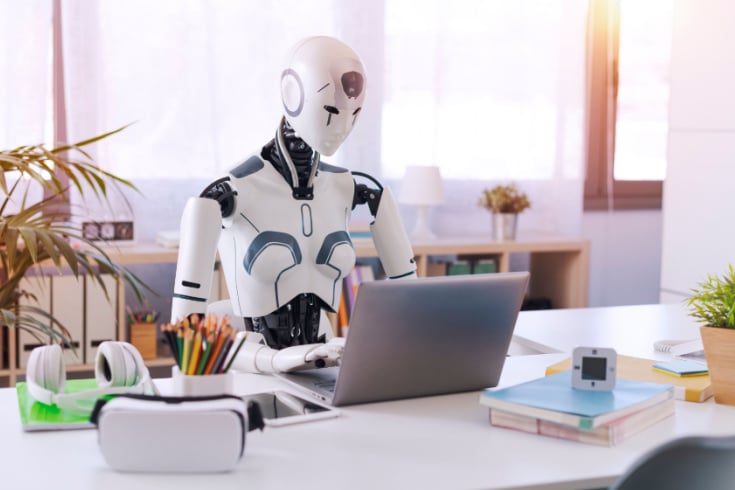
As stated at the start of this article, there is no doubt that ChatGPT is an excellent tool from the perspective of enhanced productivity and cost reduction. Therefore, integrating ChatGPT’s capabilities into your products or services will certainly be beneficial if not crucial, when competing in today’s AI-saturated market.
Productivity
ChatGPT can enhance efficiency by:
- Composing business emails
- Language translation
- Summarizing documents
- Aggregating and consolidating information for reports
- Bug-checking code
- Creating operational manuals, etc.
By delegating tedious and time-consuming tasks to ChatGPT, you can focus our attention on more creative or strategic aspects of your business. ChatGPT can also help screen for careless mistakes like typos and misspellings.
Cost Reduction
Building on the above, ChatGPT can carry out the work of laborious tasks and reduce labour costs.
For example, you can replace telephone operators with ChatGPT, by automating responses that operators used to handle one by one, saving a significant amount of time and human resources.
Furthermore, by incorporating ChatGPT’s capabilities into your own products and training it with frequently asked questions and answers, your customers can resolve issues on their own, potentially reducing the number of inquiries. Effectively implementing ChatGPT means operating with fewer staff than before and saving you a few bucks on the way.
Enhancing Customer Support Systems
With further integration of ChatGPT, 24/7 customer support in any language becomes possible.
Traditional customer support services often face struggles and limits with time constraints or language barriers. ChatGPT supports over 100 languages, which will therefore allow companies to overcome these difficulties and have the capacity to respond to all customers.
Additionally, unlike humans, AI does not need to take a break and its performance is consistent, it can provide uninterrupted customer support 24 hours a day, 365 days a year.
Conclusion: Consult with Experts if You Want to Implement ChatGPT Within Your Business
Using ChatGPT in a commercial context is not just possible, but encouraged. By implementing ChatGPT into your business operations, tasks that were previously performed by humans can be automated, save money and reduce employer burden.
However, from a legal perspective, there remain grave risks in information leaks and copyright infringement if you aren’t careful. Make sure that whatever content you are inputting into ChatGPT is 1) not copyrighted, 2) does not contain personal information (especially client data) and 3) is not confidential or sensitive information.
Furthermore, OpenAI’s Terms of Service provide rules regarding commercial use, which will continue to be updated. To mitigate avoidable risks and problems when using ChatGPT, you should consult legal experts instead of blindly implementing it without structure or policy.
Guidance on Measures by Our Firm
Monolith Law Office is a law firm whose background is in IT development. The AI business is riddled with legal risks, due to the lack of policy development world-wide, and the support of attorneys well-versed in AI-related legal issues is essential. Our firm is dedicated to providing diligent legal support for AI businesses, including those involving ChatGPT, through a team of attorneys and engineers confident in our knowledge of AI. Our services include contract drafting, corporate restructuring, intellectual property protection, and compliance with data regulations. If interested, refer to the article below for more details.
Areas of practice at Monolith Law Office: AI (including ChatGPT) Legal Affairs
Category: IT

